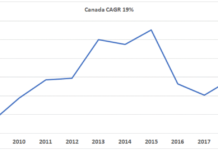David Gold
 So, you’re at a networking event and you get an opportunity to talk with a Venture Capitalist (VC) for just a few minutes. After breaking the ice with quick introductory formalities, you present your elevator pitch, right? Wrong. How can you possibly capture that VC’s interest if you don’t know what excites them? Would you try to sell meat to a vegetarian or bricks to a carpenter? Not if you knew a little about their needs and interests!
So, you’re at a networking event and you get an opportunity to talk with a Venture Capitalist (VC) for just a few minutes. After breaking the ice with quick introductory formalities, you present your elevator pitch, right? Wrong. How can you possibly capture that VC’s interest if you don’t know what excites them? Would you try to sell meat to a vegetarian or bricks to a carpenter? Not if you knew a little about their needs and interests!
When you are raising money, you are selling yourself and your company to your prospective investor. A great sales person knows that learning the needs and desires of your prospect is much more important than telling them about what you’re selling. Yet, all too often, entrepreneurs focus on conveying as much information as they can in the short time they have with a VC rather than asking questions to learn about the VC’s motivations. What are some of the more important things you should desire to learn in the first five minutes? Here are some of the top questions to ask a VC in that first short meeting.
Which specific sectors are of top interest to you?
If you’ve done any homework, hopefully you know whether the VC’s fund invests in the broad segment in which your company lies. But, just because the fund invests in cleantech doesn’t mean they invest in solar. And just because they have invested in solar doesn’t mean they are still interested in more solar investments. Even if they are into solar, they are likely more interested in some areas of technology or supply chain than others. You need to understand what current hot areas the VC is focused onthe areas that makes their ears perk up. Your goals for the first five minutes and your sales strategy should change dramatically based on whether you are a fit for their areas of interest. If you are not a fit for their interests, look to engage them as a referral source as they may know funds that would be interested. If you are a fit, then it’s time to move on to other questions…
How many new investments do you have remaining in your current fund?
How much energy would you put into selling something to a person if you found out they had no money? Venture funds don’t always have money to invest. Sometimes they are between funds. Even when VCs are in that situation, they still like to cultivate deal flow so they have a pipeline to turn to when they are ready to invest in the next fund. For funds in that situation, building a relationship for future financing can still be valuable. However, it’s important to know how to prioritize your time with them. If they are not currently active, it’s hard to justify placing them at the top of your priority list.
What size of initial investments do you typically make?
If a fund’s “bite size” is too large or too small for your round, you will likely approach them differently. For a large fund that needs to invest more than you had considered, you will have to contemplate what a larger round would look like and be prepared to pitch that to the VC. Or you need to look at that firm as a referral resource and potential prospect for any future larger rounds of investment. For a small fund that can’t even invest 20 percent of your round, you first need to find out if they would be interested in such a large round. If they are, you need to assess if they are a fund thatdespite being such a small investorcan rally other funds to the deal.
What is your geographic focus?
Some large funds are truly international. But most at least limit themselves to a country or two. Small to mid size funds may focus even more on a specific geographic region. And even large funds that have a big geographic footprint will typically end up doing more deals within a several hour drive of their offices than any other single geography. Understanding how well you fit with the VC’s geographic focus is an important element of knowing whether your location will be a showstopper, inhibitor or accelerator with that particular fund.
What stage of companies do you focus on?
“Early stage” means different things to different venture funds. For some it means two people with a business plan. For others it may mean a company with over $10M in revenue. You can’t change your stripes when it comes to your stage. That doesn’t mean there’s no value in conversing with a VC if you’re at a growth stage that doesn’t fit with his or her venture fund. If your stage is too early for them, keeping in touch and building a relationship over time can grease the wheels on their participation in the next financing round. If your stage is too late for them, here is the question to ask:
Do you know of funds that would be interested in a company that [insert elevator pitch] and is raising a $XM Series Y round?
Even if you discover that you are not a good fit for a VC’s focus areas or stage, that doesn’t mean there is no value in the discussion. VCs often advertise the areas most interesting to them to other investors specifically to encourage referrals from other types of companies. If a VC views you as credible, many find it valuable to make such referrals because they hope it will encourage other VCs to return the favor.
Would a company that [insert elevator pitch] and fits your stage and segment criteria be worth 45 minutes of your time for a deeper overview?
Only after you have determined that your company is a good fit for a VC does your elevator pitch come in to play. If you start the pitch with an acknowledgement that your company fits their stage and segment focus, you will have a much more attentive listener. Remember that your goal is not to close on a term sheetit is simply to get an opportunity for a longer meeting. I bet you can guess at this point that a key goal for you in that meeting should be to ask many more questions!
Watch for my next post on some of the best questions to ask in your first pitch session with a VC.
David Gold is an entrepreneur and engineer with national public policy experience who heads up cleantech investments for Access Venture Partners (www.accessvp.com). This article was first published on his blog, www.greengoldblog.com.









I thought it was the VC that asked the questions.
I fully agree and would like to add you can also try to find a business partner that has assets they can invest. In this way you do not only get the money but a partner as well to help making it easier to take some of your business hurdles. And I also agree that Networking is the best way to find an investor. Valen from AmeriLoanSearch